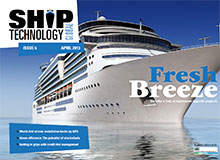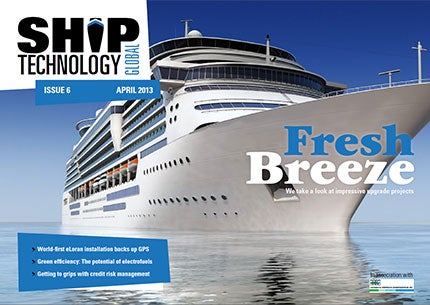
The renovation of Carnival Destiny into Carnival sunshine marks the cruise industry’s most ambitious refurbishment project. We profile the project and ask whether revitalisation programmes on this scale are an indication of things to come.
The General Lighthouse Authorities of the UK and Ireland have deployed eLoran radio navigation technology to back up satnav systems in the English Channel, the first such installation in the world. With GPS and Galileo systems susceptible to disruption, we profile how this extra layer of positioning assistance could improve navigational safety in one of the world’s busiest shipping corridors, and explore the potential for extensive commercial adoption of eLoran.
We also profile the development of new environmentally friendly biofuels, which have been criticised for their lack of efficiency. Moreover, we look at Europe’s shipyards, which are facing jeopardy as a result of the global recession and low-cost competition from Asia, and we also look at the five ‘Cs’ of credit risk.
Click here to read the latest issue.
In this issue:
Time to Innovate
Steven Jones, maritime director of the Security Association for the Maritime Industry (SAMI), reviews contemporary maritime security issues.
Click to read the full article.
How well do you really know your competitors?
Access the most comprehensive Company Profiles on the market, powered by GlobalData. Save hours of research. Gain competitive edge.

Thank you!
Your download email will arrive shortly
Not ready to buy yet? Download a free sample
We are confident about the unique quality of our Company Profiles. However, we want you to make the most beneficial decision for your business, so we offer a free sample that you can download by submitting the below form
By GlobalDataBring Me Sunshine
The renovation of Carnival Destiny into Carnival Sunshine marks the cruise industry’s most ambitious refurbishment project.
Click to read the full article.
Pause for Reflection
The final member of Celebrity Cruises’ Solstice class made its maiden voyage in 2012. Ship Technology Global asks Harri Kulovaara how technology and experience will make it the best in a distinguished class.
Click to read the full article.
Positional Assistance
GPS signals can be choppy at sea or get jammed by smugglers, causing a need for positional assistance in shipping straits. We explore how the world’s first deployment of eLoran may solve the problem in the English Channel.
Click to read the full article.
Electrically Efficient
Biofuels promise to be environmentally friendly but critics have condemned their efficiency. We ask how, by bypassing photosynthesis and using electricity, electrofuels could provide the answer for the green shipping market.
Click to read the full article.
The Sinking Shipyards
Europe’s shipyards are facing rough seas due to the global recession and low-cost competition from Asia. Ship Technology Global asks will the industry be able to weather the storm?
Click to read the full article.
The Port of Melbourne
The Port of Melbourne, on the mouth of the Yarra River, Victoria, Australia, is owned by the state’s Port of Melbourne Corporation. Built in 1889, it is the country’s largest container and general cargo port, managing nearly 37% of the total container trade.
Click to read the full article.
Sailing Through the Crunch
Since the credit crisis, the shipping industry has focused more on bringing clarity to credit status. Dan Reid of Triple Point Technology argues that it’s time to recognise the ‘five Cs’ of credit risk.
Click to read the full article.
Next issue preview
From the environmental impact of cruise liners to a vessel’s engine efficiency, understanding noise and vibration can make a huge difference. In the next issue wake a look at the role of noise and vibration assessment in new builds, refits and troubleshooting.
We also explore the Aquarius MRE solar and wind powered ship design, find out if DNV’s revolutionary concept for on-board carbon capture and storage is viable, and take a look at the cargo research ship MAGIC which was built to study the effect of ocean clouds on the climate.
As melting ice is expected to open Arctic shipping routes by 2050, we investigate the implications for line jurisdiction, port construction and trade. Moreover, we profile new hull cleaning technologies, and take a look at the expansion of the UK’s ports.
The next issue will be out in June. Sign up for your free subscription to get each future issue delivered directly to your inbox.
Digital magazine FAQ
The digital magazine is viewable on any computer with Flash Player installed. It is also viewable on mobile devices, iPhones and iPads, although some features and videos may be disabled.




